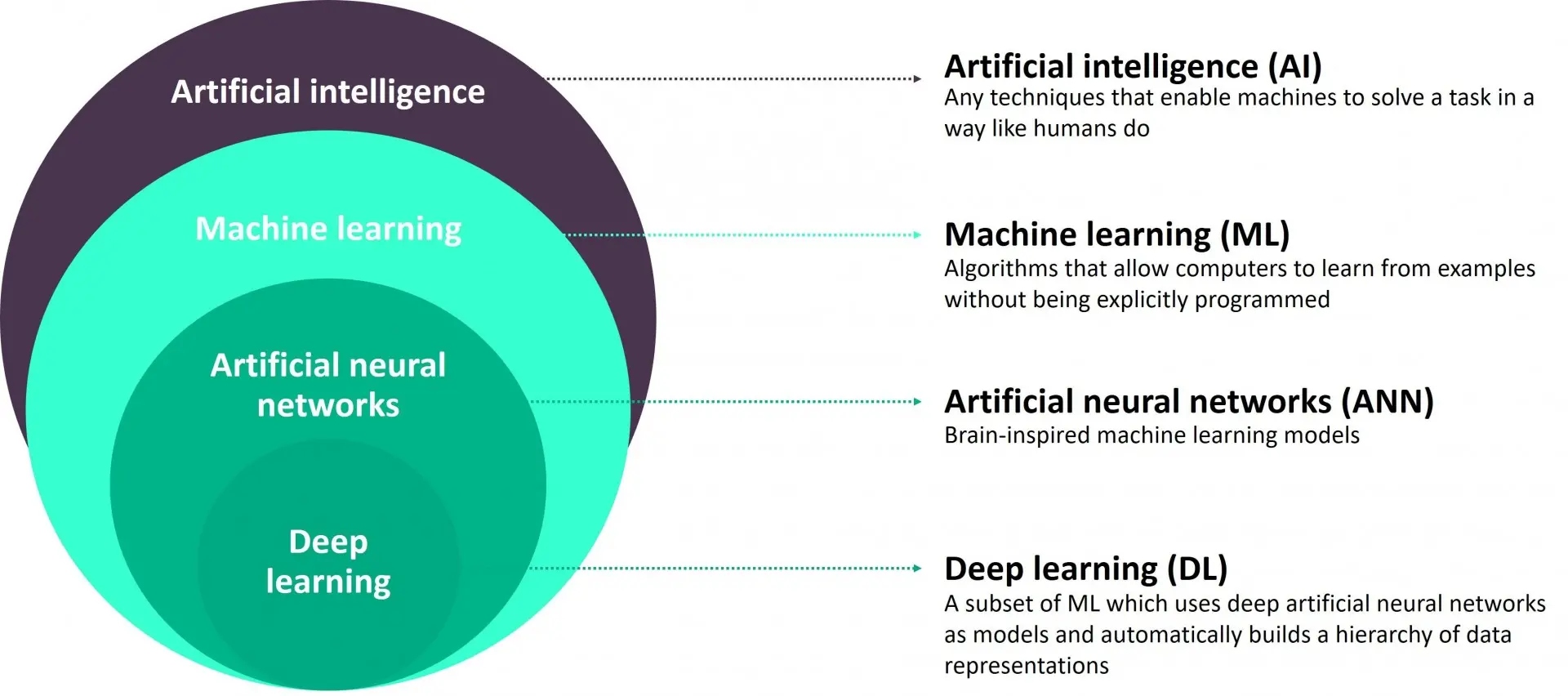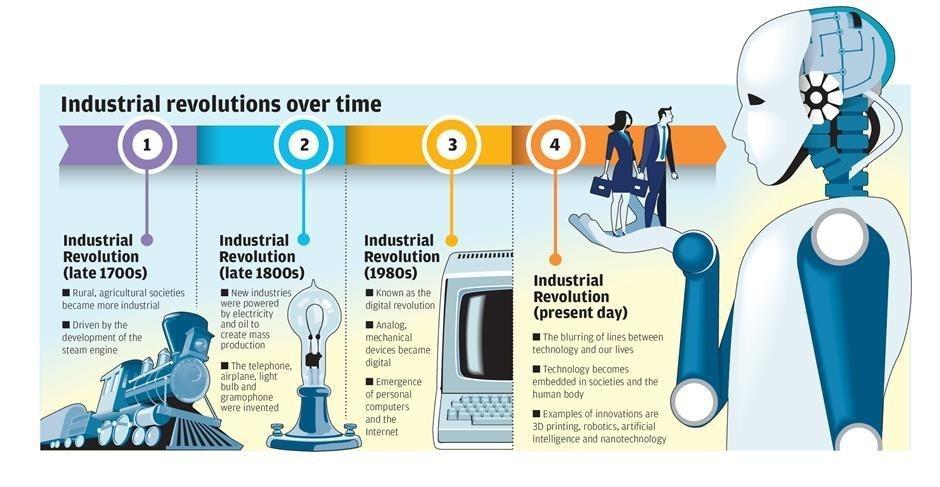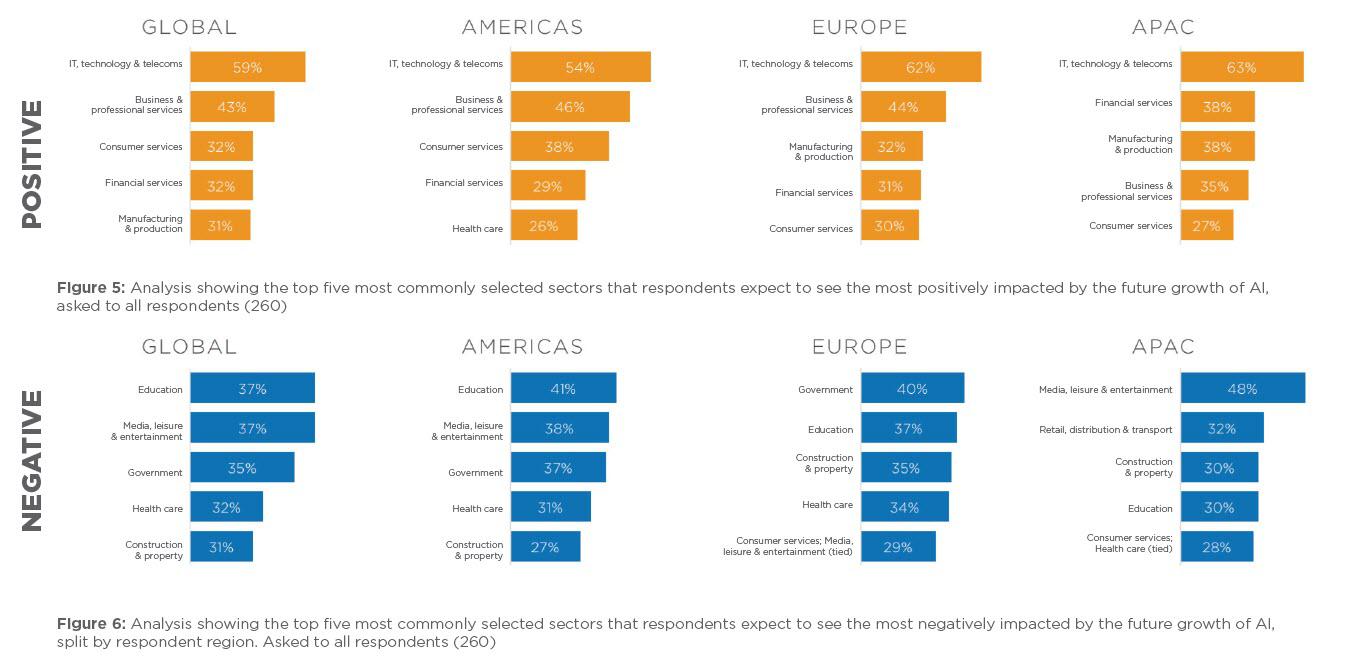Comments
- No comments found

Artificial intelligence (AI) is set to have a significant impact on the future of work.
Businesses must ensure that their workforce has the right mix of skills to keep up with changing technology.
The Fourth Industrial Revolution is centred on artificial intelligence. The convergence of increasing computing power, machine learning, and big data analytics has reshaped our world. Today's computers are cognitively evolved knowledge machines with 10-15 layers of neural networks.
Artificial intelligence has several subsets:

Several routine and repetitive tasks are likely to be automated as AI technology advances, potentially resulting in job displacement and the need for workers to develop new skills and capabilities.

AI will transform the way we work and the jobs we do. Despite concerns about job displacement, AI has the potential to improve human capabilities while also creating new jobs and industries.
Individuals and organisations must be proactive in developing new skills and embracing lifelong learning to prepare for the future of work. With new tools and technologies enabling more effective and efficient collaboration across teams and geographies, AI is likely to have a significant impact on the way we collaborate and communicate in the workplace. When it comes to AI and the future of work, ethical considerations are also important, as companies must ensure that the use of AI is fair, transparent, and accountable.
While the future of work is uncertain, one thing is certain: AI will play a significant role in shaping it, and those who can adapt and embrace new technologies will be the most successful in the coming years.
Several factors contribute to improvements in generative AI including:
Powerful data: With the recent explosion of digital data, there is now more data available to train generative models. Because of the increased availability of data, models can now learn from a larger and more diverse set of data, which, in our opinion, can lead to improved performance.
Advanced algorithms: In recent years, generative modelling algorithms such as Generative Adversarial Networks (GANs), Variational Autoencoders (VAEs), and transformers have made significant advances. These models are more capable of capturing complex relationships in data and producing high-quality samples.
Stronger hardware: More powerful hardware, such as GPUs and TPUs (Tensor Processing Units), makes it possible for researchers to train larger and more complex models. The ability to train larger models has resulted in significant improvements in generative model quality.
Transfer learning: Transfer learning allows models pre-trained on large datasets to be fine-tuned on smaller, task-specific datasets or a set of prompts designed for that task. By leveraging pre-training knowledge, generative AI can frequently produce higher-quality outputs with less data and training time.
In recent years, generative AI, which includes deep learning models like GPT-3, has made significant progress in generating human-like text, music, and even images. It is important to note, however, that AI is still a long way from outsmarting humans or surpassing us in general intelligence. While AI can excel at specific tasks such as chess or face recognition, it lacks the general cognitive abilities and creativity that humans have.

GPT4 can process up to 25,000 words per second, which is roughly eight times faster than ChatGPT. Advancements in generative AI and other areas of machine learning are likely to continue in the coming years.
While humans are increasingly reliant on AI in various aspects of their lives, it is critical to recognise that AI is not a replacement for human skills and expertise. Instead, AI can be a valuable tool for augmenting and improving human capabilities. As a result, it is critical that individuals and organisations gain a better understanding of AI and its potential applications, as well as consider the ethical implications of its use.
Companies that integrate artificial intelligence (AI) systems into their operations, products and services, and corporate strategy generate transformative business value.
Many businesses are investing in artificial intelligence for a variety of reasons.

AI can assist businesses in increasing their efficiency and productivity. AI can reduce the time and resources required to complete certain tasks by automating them, allowing employees to focus on more important and strategic work.
Artificial intelligence can provide valuable insights into customer behaviour and preferences. AI can assist businesses in identifying patterns and trends that would be difficult to detect otherwise by analysing large amounts of data. This data can be used to improve products and services, more effectively target marketing campaigns, and ultimately increase revenue.
AI can improve decision-making by providing real-time data analysis and recommendations. This can assist businesses in making more informed and precise decisions, lowering the risk of errors and improving outcomes.
Several businesses are investing in AI in order to gain a competitive advantage. Companies can differentiate themselves from competitors, attract and retain customers, and position themselves for long-term success by implementing AI early.
The concept of "singularity" refers to a hypothetical point in time when technological progress outpaces human intelligence and becomes impossible for humans to predict or control.
While it is difficult to predict the future of technology with certainty, many experts believe that we are not yet close to achieving singularity. While AI has made significant advancements in recent years, it still has limitations and is not yet capable of surpassing human intelligence in all areas.
It is important to note that the concept of singularity is highly debated and controversial among experts, and there is no consensus on whether it is a realistic or even desirable outcome. Some argue that the idea is more science fiction than science, while others believe that it poses significant risks and challenges that must be carefully considered and addressed.
Leave your comments
Post comment as a guest